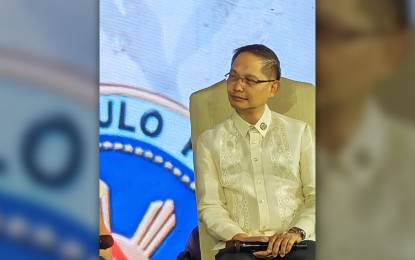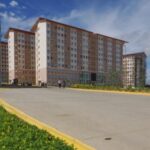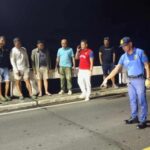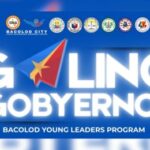MANILA – Technical Education and Skills Development Authority (TESDA) Secretary Jose Francisco Benitez urged students to consider lifelong learning and to upskill.
“Upskilling never ends because the demands and skills needed in jobs are always evolving,” he said during the post-State of the Nation Address (SONA) conference in San Juan City.
Benitez said he hoped students would realize that training and additional skills would also help them secure good jobs.
Technical vocational education (tech-voc) is gradually being integrated into the senior high school curriculum.
TESDA is providing assessments to senior high school students so they can obtain national certificates (NC) II or III.
About 175,000 senior high school students were certified in 2024, according to Benitez.
“This is highly important for senior high schools. According to surveys conducted by industries and businesses, four out of five companies are willing to hire senior high school students if they have skills certification,” he said.
Providing constant upskilling and reskilling is also among the government’s strategies to address skills mismatch, the TESDA chief added.
In his 4th SONA last Monday, President Ferdinand R. Marcos Jr. said almost PHP60 billion will be allocated for free education in public colleges as well as tech-voc.
Technical Education and Skills Development Authority (TESDA)
The **Technical Education and Skills Development Authority (TESDA)** is a Philippine government agency established in 1994 to oversee technical and vocational education and training (TVET). It was created through the **Technical Education and Skills Development Act of 1994** (Republic Act No. 7796) to promote workforce skills development and improve employment opportunities. TESDA offers various training programs, certifications, and industry partnerships to support the country’s skilled labor force.
State of the Nation Address (SONA)
The **State of the Nation Address (SONA)** is an annual speech delivered by the President of the Philippines to Congress, outlining the government’s achievements, plans, and policy directions. Modeled after the U.S. State of the Union, it is mandated by the 1987 Philippine Constitution and serves as a key platform for transparency and accountability. The event, held at the Batasang Pambansa Complex in Quezon City, is a significant political tradition dating back to the Commonwealth era under President Manuel L. Quezon.
San Juan City
San Juan City is a highly urbanized city in Metro Manila, Philippines, known for its rich history and cultural landmarks. It was established in 1623 and played a significant role during the Philippine Revolution against Spanish colonial rule. Today, it is famous for sites like Pinaglabanan Shrine, which commemorates the Battle of San Juan del Monte, and the Greenhills Shopping Center, a popular commercial hub.
MANILA
Manila, the capital of the Philippines, is a vibrant city with a rich history dating back to its founding in 1571 by Spanish conquistadors. Known for its blend of colonial architecture, modern skyscrapers, and bustling markets, it features historic sites like Intramuros, the old walled city, and Rizal Park, dedicated to the national hero José Rizal. Today, Manila is a cultural and economic hub, reflecting centuries of Spanish, American, and Filipino influences.
national certificates (NC) II or III
National Certificates (NC) II or III are vocational qualifications issued by the Technical Education and Skills Development Authority (TESDA) in the Philippines, certifying a person’s competency in specific technical or vocational skills. These certificates are part of the country’s effort to enhance workforce readiness, with NC II covering intermediate skills and NC III covering advanced or supervisory-level skills. They are often required for employment in industries like construction, hospitality, automotive, and healthcare, and are obtained through training and assessment programs.






